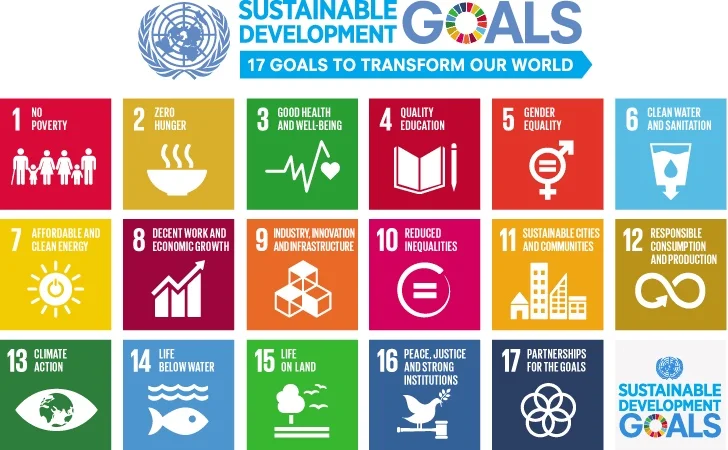World leaders have converged on New York to attend the United Nations General Assembly this week. With 193 countries represented, each speaker will have in theory 15 minutes to make their keynote address to the Assembly, starting with Brazil and followed by the US. Although this is often what you will see on your television screens and in your newspapers the comments and soundbites from these speeches, there is much more to UNGA week.
Many Government delegations will be substantial in size with a range of Ministers having packed schedules planned with bilateral meetings with other Governments, meetings and events held in the margins of UNGA and speaking at country own events, panels or using the variety of think tanks as a platform to push their particular agenda.
Two of the key clear agendas for UNGA week this year is focused around climate change action and the UN Sustainable Development Goals (SDGs).
Starting today, will be the two day high level summit on the UN SDGs which will see Heads of State and Government participate in following up and reviewing progress in the implementation of the 2030 Agenda for Sustainable Development and the 17 SDGs. This is a significant summit as it is the first UN summit on the SDGs since the adoption of the 2030 Agenda in September 2015.
This SDG summit will allow leaders from government, business and other sectors to demonstrate their continued strong commitment and identify specific acceleration actions as we gear up for a decade of action and delivery, leading up-to the 2030 deadline.
The summit over the two days will be structured around six dialogue pillars which are:
Megatrends impacting the achievement of the Sustainable Development Goals
Accelerating the achievement of the Sustainable Development Goals: critical entry points
Measures to leverage progress across the Sustainable Development Goals
Localizing the Sustainable Development Goals
Partnerships for Sustainable Development
The 2020-2030 Vision
What does this mean for the world of business?
It is increasingly clear that the SDGs cannot be achieved solely through the actions taken at Government level, they have to be achieved through the actions of a range of wider stakeholders with business being a key partner in the realization of the 2030 agenda.
Societal expectations exist for businesses to help lead the way on humanity’s greatest challenges. Purposeful driven actions by businesses are both good for the world, and good for business. There is a substantial economic prize if the SDGs are achieved. The Business and Sustainable Development Commission have estimated that by achieving the SDGs it could unlock $12 trillion a year in business value across four economic systems alone by 2030. This breakdowns at: food and agriculture at $2.3 trillion; cities and urban mobility at $3.7 trillion; energy and materials at $4.3 trillion; and, health and wellbeing at $1.8 trillion. Creating more than 380 million jobs.
With ecosystems more inter-connected than ever before, there is a wonderful opportunity for business to tap into shared agendas – such as the SDGs - that exist and identify ways to align and contribute to these to participate in the world around them.
At Manara Global, we help businesses to do just that. We help to identify these shared agendas which opens the door to fruitful and exciting wider opportunities that can deliver mutual benefits and in doing so utilizes the power of partnerships. Through these partnerships and collaborations, reputations can be further enhanced and reinforced both locally and globally.
In this vein, we help businesses to identify the most relevant SDGs to them, demonstrate alignment with each, incorporate them into their business and growth strategy and how best to communicate their sustained participation with the SDGs through the actions designed to achieve them. Through this purposeful approach, it can mean enhanced reputations gained by actually doing the right thing, not simply just talking the right thing.
The SDGs provide us with a new lens through which to translate global needs and ambitions into business solutions. These solutions will enable businesses to better manage their risks, anticipate consumer demand, build positions in growth markets, secure access to needed resources and strengthen their supply chains, while moving the world towards the delivery of the SDGs.

